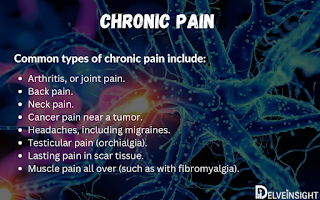AI-Powered Healthcare Apps: Improving Patient Care and Diagnostic Accuracy
Artificial Intelligence (AI) has revolutionized various industries, and healthcare is no exception. The integration of AI into mobile applications has paved the way for innovative and efficient healthcare solutions. By leveraging AI algorithms and machine learning techniques, healthcare apps can enhance diagnostic accuracy, improve patient care, and streamline processes. In this blog, we will explore the top AI-based healthcare mobile apps in the market, analyze their key features, and shed light on their impactful use cases.
Top Artificial Intelligence-Based Healthcare Mobile Apps in the Market:
AI in Drug Commercialization:
AI-powered healthcare apps are transforming the drug commercialization process. These apps leverage machine learning algorithms to analyze vast amounts of data, including clinical trials, regulatory guidelines, and patient data, to expedite the commercialization of new drugs. By providing comprehensive insights into the drug's efficacy, side effects, and target population, these apps enable pharmaceutical companies to make informed decisions regarding drug commercialization.
AI in Drug Discovery:
AI-based healthcare apps have revolutionized the drug discovery process by significantly reducing the time and resources required to develop new medications. These apps employ deep learning algorithms to analyze massive datasets and identify potential drug candidates. By accelerating the identification and validation of promising compounds, AI-powered drug discovery apps hold the potential to revolutionize the pharmaceutical industry.
Hucu.ai
Hucu.ai is a free, HIPAA-secure, patient-focused chat network with in-app staff recognition and real-time risk rating. The software helps healthcare organisations' staff members remain in touch and streamlines communication between your team and your partner organisations. In order to save space on user devices, the users can share text, documents, photos, emoticons, and videos that are safely saved in the Hucu.ai secured cloud. Additionally, it offers a deep analytics function that has been shown to facilitate efficient care coordination and significantly enhance patient outcomes.
Key Analysis and Perspective on AI-Based Healthcare Mobile Apps:
AI-based healthcare apps offer numerous benefits and use cases, including:
a. Enhanced Diagnostic Accuracy:
By leveraging AI algorithms, healthcare apps can analyze patient data, medical images, and symptoms to provide accurate and timely diagnoses. This can assist healthcare professionals in making informed decisions, leading to improved patient outcomes and reduced misdiagnosis rates.
b. Personalized Treatment and Care:
AI-powered healthcare apps can generate personalized treatment plans based on an individual's medical history, genetic information, and real-time health data. These apps can monitor patients remotely, offer medication reminders, and provide tailored healthcare recommendations, thus enhancing patient engagement and overall well-being.
c. Disease Prediction and Prevention:
Healthcare apps equipped with AI algorithms can predict the likelihood of certain diseases based on risk factors, genetics, and lifestyle data. By identifying high-risk individuals, these apps can promote proactive measures, such as lifestyle modifications and early interventions, to prevent or manage diseases effectively.
Conclusion:
The integration of Artificial Intelligence (AI) into healthcare mobile apps has opened up new possibilities in patient care, drug commercialization, and drug discovery. AI-powered healthcare apps offer enhanced diagnostic accuracy, personalized treatment options, and disease prediction capabilities. As technology continues to advance, we can expect further advancements in AI-based healthcare mobile apps, leading to improved healthcare outcomes and a more patient-centric approach to medical services.
Latest Reports By DelveInsight-
Monkeypox Market
DelveInsight's "Monkeypox Market Insights, Epidemiology, and Market Forecast-2032" report delivers an in-depth understanding of the Monkeypox, historical and forecasted epidemiology as well as the Monkeypox market trends in the United States, EU5 (Germany, Spain, Italy, France, and United Kingdom) and Japan.
Patient Monitoring Devices Market
Patient Monitoring Devices Market By Type Of Devices (Neuromonitoring Devices, Cardiac Monitoring Devices, Respiratory Monitoring Devices, Hemodynamic Monitoring Devices, Blood Glucose Monitoring Systems, And Others), By Application (Cardiology, Neurology, Respiratory, And Others), By End-User (Hospitals & Clinics, Ambulatory Surgical Centers, Home Care Settings, And Others), by geography, is anticipated to grow at a significant CAGR till 2028 owing to the growing prevalence of various chronic disorders and integration of advanced technology in the products.
Typhoid Market
DelveInsight's "Typhoid Fever Market Insights, Epidemiology, and Market Forecast-2032" report delivers an in-depth understanding of the Typhoid Fever, historical and forecasted epidemiology as well as the Typhoid Fever market trends in the United States, EU5 (Germany, Spain, Italy, France, and United Kingdom) and Japan.
Zika Virus Market
DelveInsight's "Zika Virus Market Insights, Epidemiology, and Market Forecast-2032" report delivers an in-depth understanding of the Zika Virus, historical and forecasted epidemiology as well as the Zika Virus market trends in the United States, EU5 (Germany, Spain, Italy, France, and United Kingdom) and Japan.
Latest Reports By DelveInsight
Hypertrophic Scar Market | Lung Fibrosis Market | Anterior Uveitis Market | 22q11.2 deletion syndrome Market | X-Linked Retinitis Pigmentosa (XLRP) Market | Acute Radiation Syndrome Market | Alpha-1 Protease Inhibitor Deficiency Market | Androgenetic Alopecia Market | Hyperlipidemia Market | Cardiotoxicity Market | Hypertrophic Cardiomyopathy Market | Fatty Acid Oxidation Disorders (FAODs) Market | Androgen Insensitivity Syndrome Market | Emphysema Market | Canaloplasty Market | Dravet Syndrome Market | Celiac Disease Market | Chlamydia Infections Market | Syphilis Market | Renal Tubular Acidosis Market | Palmoplantar Pustulosis (PPP) Market | Aplastic Anemia Market | Bacterial Pneumonia Market | B cell Chronic Lymphocytic Leukemia Market | B cell Lymphomas Market | Behcets Disease Market Neoantigen-based Personalized Cancer therapeutic Vaccines Competitive Landscape and Market Forecast—by 2035 | Glioblastoma Market
To know more about our Consulting Services, Click here: DelveInsight Healthcare Consulting
Recent Blog’s By DelveInsight:
Insights Into The Cutaneous T-cell Lymphoma Treatment Market
Roche’s HEMLIBRA: A Game Changer in Hemophilia A Treatment Landscape
How Will Emerging Therapies Drift the Amyotrophic Lateral Sclerosis (ALS) Treatment Landscape
How are Technological Trends and Innovations Reshaping the Dementia Care
Assessing the Major Growth and Ongoing Developments in the Clinical Diagnostics Market
Non-opioid Analgesics Chronic Pain Treatment: Savior of Underserved Patients
Evaluating the Key Trends and Technologies Shaping the Future of Dentistry

.png)


Comments
Post a Comment